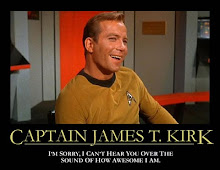Allen Ginsberg is by far one of the most interesting poets that I have ever read. He dared to rise up against the norm of society and write without borders. Ginsberg and a few other men were all members of the Beat Generation; a group of youth that began to experiment with drugs, sex, and new forms of art. Ginsberg is created with writing one of the defining poems of the so called Beat Generation; Howl. Howl takes a shot at the leaders of the generation he is writing in and calls for the youth of the next generation to rise up. Howl is also responsible for inspiring the 60’s movement and great artists like Bob Dylan and we see this influence in his work.
The first major way we see the Allen Ginsberg’s influence on Bob Dylan is in the language that both artists use. Ginsberg uses a very descriptive form of writing. He uses a sometimes very confusing language to describe his points. A good example of this would be the first very famous lines of Howl. “I saw the best minds of my generation destroyed by madness, starving hysterical naked, dragging themselves through the negro streets at dawn looking for an angry fix, angelheaded hipsters burning for the ancient heavenly connection to the starry dynamo in the machinery of the night” (Ginsberg, 1956). We see this language mirrored in many of Bob Dylan’s songs. A good example of this is in the song “All Along the Watchtower”. "’There must be some way out of here,’ said the joker to the thief, ‘There's too much confusion, I can't get no relief. Businessmen, they drink my wine, plowmen dig my earth, none of them along the line know what any of it is worth’” (Dylan). This is a very good mirror image of the strange but very descriptive language that Allen Ginsberg uses.
Another way we see Allen Ginsberg’s influence on Bob Dylan is the message that both artists are attempting to get across. Ginsberg’s Howl is very politically minded poem. The poem deals with big political themes like Islam, racism, anti-Semitism, Christianity, communism, and many others (Ginsberg, 1956). Bob Dylan, in turn, also discusses many political and social issues that were going on at the time. A good example would be his song “the Times They Are A Changin’”. “Come mothers and fathers, throughout the land and don't criticize what you can't understand. Your sons and your daughters are beyond your command. Your old road is rapidly aging'. Please get out of the new one if you can't lend your hand for the times they are a-changin'” (Dylan, The Times They Are A Changin' Lyrics ). The song is basically a shot at the older generation who was getting in the way of the progress of the new generation of thinkers. Ginsberg’s influence on Dylan is really quite obvious through their messages.
In conclusion, Allen Ginsberg had an incredible influence on the artists that would drive the changes that would come in the 60’s and 70’s. Bob Dylan was also by far one of the major drivers of this movement. Ginsberg’s influenced helped Dylan shape his style that would not only change the way folk music was played, but would define a generation for eternity.
Works Cited
Dylan, B. (n.d.). All Along the Watchtower Lyrics. Retrieved October 2009, from Bob Dylan: http://www.bobdylan.com/#/songs/all-along-watchtower
Dylan, B. (n.d.). The Times They Are A Changin' Lyrics . Retrieved October 2009, from Bob Dylan: http://www.bobdylan.com/#/songs/times-they-are-changin
Ginsberg, A. (1956). Howl and other Poems. San Francisco: City Lights Books.
Subscribe to:
Post Comments (Atom)

I think you may have missed the most clear reference in All Along the Watchtower.
ReplyDelete>Outside in the distance a wildcat did growl,
Two riders were approaching, the wind began to howl.<
The very last word is indeed HOWL, which some say is a clear reference to Ginsburg's poem. Also, the previous reference to "two riders were approaching" is easily interpreted as "two writers" (dylan and ginsburg). ps - so who is the wild cat??? my money is on Jimi, a wild cat for sure.